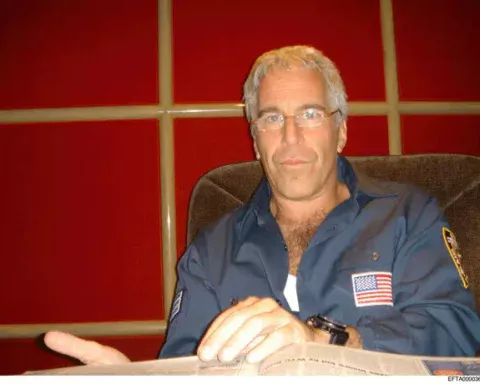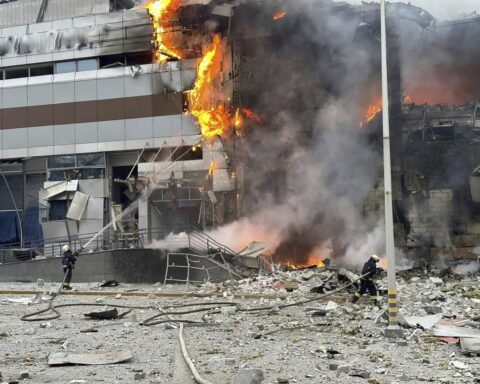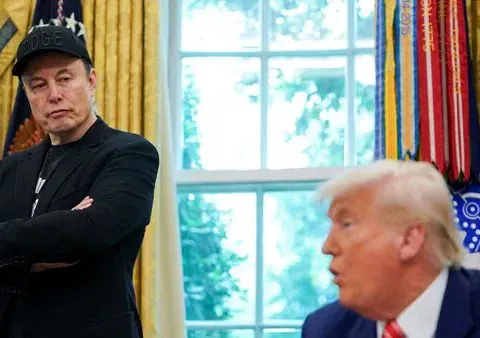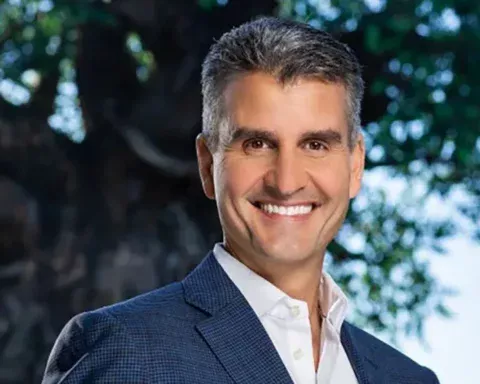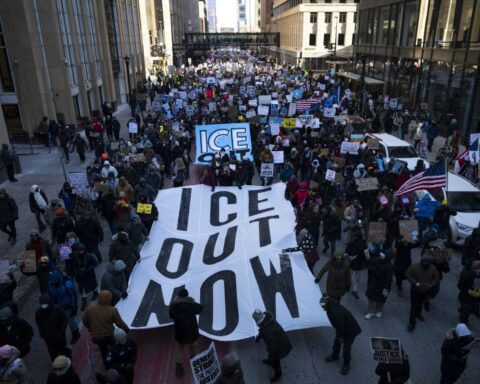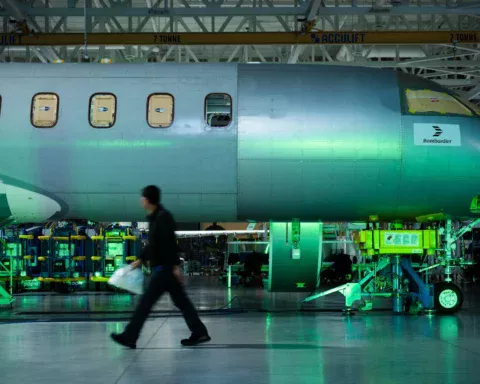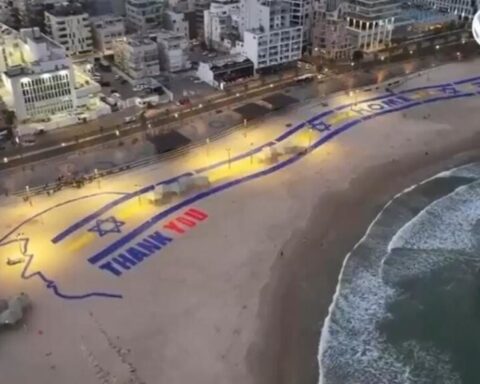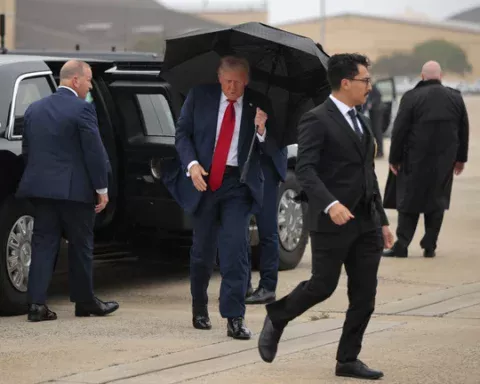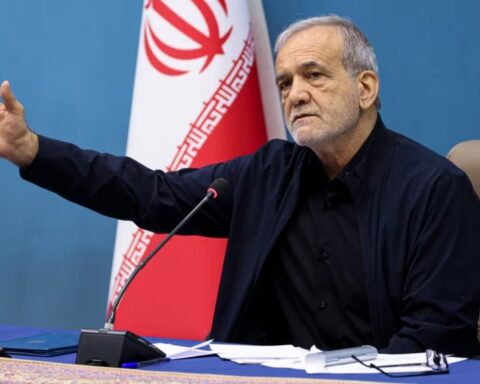The United States is looking to make headway on President Donald Trump’s ceasefire hopes as high-stakes talks with Russia commence in Saudi Arabia, aiming to halt the relentless conflict in Ukraine.
With Trump’s administration driving a renewed diplomatic push, U.S. negotiators are engaging Russian officials in Riyadh to secure a partial truce, starting with a maritime ceasefire in the Black Sea, amid ongoing Russian drone assaults that underscore the urgency of the moment.
This effort, spearheaded by Trump’s envoy Steve Witkoff and bolstered by Secretary of State Marco Rubio, reflects a bold bid to fulfill the president’s campaign pledge to swiftly end the war, even as skepticism and battlefield realities test the prospects of success.
The negotiations kicked off against a backdrop of escalating violence and global anticipation. On March 24, 2025, the Ritz-Carlton in Riyadh became the stage for this diplomatic gambit, following a weekend of deadly Russian drone strikes across Ukraine that claimed at least seven lives, per NBC News. The talks, which began Monday after productive U.S.-Ukraine discussions on Sunday, are a rare direct engagement between Washington and Moscow, mediated by Saudi Arabia’s neutral stance. Trump’s personal involvement—speaking with both Vladimir Putin and Volodymyr Zelensky last week—has injected momentum, though the Kremlin’s insistence on preconditions and Ukraine’s demand for guarantees signal a rocky road ahead, as reported by the BBC.
A Diplomatic Breakthrough in the Desert
The Riyadh talks represent Trump’s most tangible step yet toward delivering on his promise to resolve the Ukraine conflict “in 24 hours,” a boast from his 2024 campaign trail. CNN details how U.S. envoy Steve Witkoff, a real estate magnate turned diplomat, opened Monday’s session with optimism, telling Fox News, “I think you’re going to see some real progress, particularly on a Black Sea ceasefire.” The White House has prioritized a maritime truce to restore shipping safety, a move seen as a confidence-building measure before tackling the broader war, per Reuters. Secretary Rubio, alongside National Security Adviser Mike Waltz, leads the U.S. delegation, emphasizing a phased approach—energy ceasefire first, then maritime, then full cessation.
Sunday’s U.S.-Ukraine talks laid crucial groundwork. Ukrainian Defense Minister Rustem Umerov described them as “productive and focused,” per CNN, with Kyiv agreeing in principle to a 30-day truce if Russia reciprocates. Trump’s call with Zelensky on March 19, detailed by NBC News, secured this tentative buy-in, though Zelensky stressed the need for Putin to “stop the strikes” for talks to succeed, per the BBC. Russia’s response has been mixed—Putin agreed to pause energy attacks after a March 18 call with Trump, per Fox News, but drone barrages continued, undermining trust, as the New York Times notes.
U.S. Looks to Make Headway on Trump’s Ceasefire Hopes in Saudi Talks
The U.S. strategy hinges on incremental gains, with the Black Sea as a starting point. The New York Times explains that this maritime focus aims to revive a grain export deal scuttled in 2023, easing global food pressures while testing Russia’s willingness to de-escalate. Witkoff, in a Fox News interview, praised Putin as “super smart” and insisted he “wants peace,” a view that has alarmed European allies wary of Trump echoing Kremlin talking points. Rubio, speaking to NBC News, framed the talks as “the beginning of a process,” avoiding specifics on concessions—a nod to the delicate balance between diplomacy and battlefield leverage.
Russia’s delegation, led by Foreign Minister Sergey Lavrov, brings a harder line. Kremlin spokesman Dmitry Peskov told Reuters that negotiations would be “difficult,” with Moscow demanding an end to Western arms and intelligence support for Kyiv—conditions Trump has dodged addressing publicly, per Fox News. The BBC reports that Russia’s weekend assault, launching 99 drones and killing civilians in Kyiv, was a show of strength, signaling Putin’s reluctance to yield without major Ukrainian concessions. This duality—talks in Riyadh, bombs in Ukraine—defines the challenge facing U.S. negotiators.
The War’s Unrelenting Toll
The urgency of a ceasefire is palpable on Ukraine’s scarred ground. NBC News reported that Sunday’s drone swarm—147 devices, with 97 downed—left Kyiv reeling , with debris igniting residential fires. Zelensky, in a CNN address, called it a “daily reality” that demands global pressure on Moscow. Russia’s Ministry of Defense countered via Fox News, claiming to have neutralized 59 Ukrainian drones over Rostov and Astrakhan, accusing Kyiv of sabotaging peace efforts. The New York Times notes Russian gains in Donetsk, contrasted by Ukraine’s recapture of Nadia in Luhansk, painting a war of grinding attrition.
The human cost fuels the diplomatic push. The Guardian tallied 1,580 bombs and 1,100 drones deployed by Russia in the past week alone, a barrage that underscores the stakes in Riyadh. Zelensky’s plea for a comprehensive truce—land, sea, and air—clashes with Trump’s phased plan, per CNN, while Putin’s partial concessions on energy targets have faltered, with Ukraine alleging breaches hours after his pledge, per Reuters. This dissonance tests the U.S. ability to bridge the gap between Kyiv’s survival instincts and Moscow’s strategic calculus.
Trump’s High-Stakes Gamble
Trump’s fingerprints are all over this initiative, reflecting his dealmaker persona. After a tense February Oval Office clash with Zelensky over aid cuts—later reversed—Trump pivoted to diplomacy, per Fox News. His March 18 call with Putin yielded the energy ceasefire promise, though its fragility was evident as strikes persisted, per NBC News. The White House sees Riyadh as a chance to lock in a broader truce by Easter, an ambitious timeline Bloomberg calls optimistic given the “wide gulf” in expectations. Rubio hinted to NBC that a maritime deal could “gravitate into a full-on shooting ceasefire,” but details remain elusive.
Critics see risks in Trump’s approach. The BBC warns that his focus on quick wins—like mineral access deals floated earlier—distracts from ending the fighting, a view Zelensky initially resisted before relenting. European leaders, per CNN, fear a U.S.-Russia pact bypassing NATO, with France’s Jean-Noël Barrot cautioning against undermining Ukraine’s sovereignty. Peskov’s tepid response—“we are only at the beginning”—tempers U.S. hopes, per the Guardian, suggesting Putin may use talks to stall while pressing battlefield advantages.
Saudi Arabia’s Pivotal Role
Saudi Arabia’s hosting of these talks elevates its diplomatic clout. Crown Prince Mohammed bin Salman, balancing OPEC+ ties with Russia and Western alliances, offers a neutral stage, per NBC News. The Ritz-Carlton, once a prison for elites in 2017, now hosts this delicate dance, with Foreign Minister Faisal bin Farhan mediating, per Reuters. The kingdom’s stake in stabilizing energy and grain markets aligns with Trump’s economic focus, though CNN notes its exclusion of Ukraine from direct Russia talks has irked Kyiv, which seeks a seat at the table.
The Saudi backdrop amplifies global implications. Fox News speculates a Trump-Putin summit could follow success in Riyadh, while the BBC highlights Europe’s unease at being sidelined. China and Iran, watching from afar, may adjust their own strategies if a deal reshapes Black Sea dynamics, per the New York Times. For the U.S., Saudi mediation is a double-edged sword—facilitating talks but complicating Ukraine’s trust in the process.
Europe’s Wary Gaze
European allies are on edge as Trump’s unilateral push unfolds. The Guardian reports UK Prime Minister Keir Starmer’s peacekeeping coalition plan was dismissed by Witkoff as “a posture and a pose,” straining transatlantic ties. Germany’s Olaf Scholz, per CNN, urged respect for Ukraine’s red lines, hinting at EU counter-measures if Trump pressures Kyiv into ceding territory. Zelensky’s absence from Riyadh—his team briefed remotely—underscores Kyiv’s wariness, per the BBC, with his demand for Putin’s accountability clashing with U.S. pragmatism.
Posts trending on X reflect public unease, with some hailing Trump’s boldness and others decrying a potential sellout of Ukraine. The New York Times warns that a deal freezing current lines—Russia controls 18% of Ukraine—could embolden Putin long-term, a risk Rubio downplays but Europe fears. NATO’s cohesion hangs in the balance, per Fox News, as Trump’s “America First” lens reshapes alliance dynamics.
A Fragile Path Forward
The Riyadh talks teeter between hope and deadlock. A Black Sea ceasefire could pause the carnage, buying time for broader negotiations, as Witkoff predicts, per Fox News. Yet, each drone strike—57 downed Sunday night, per NBC—erodes trust, with Zelensky insisting on a full halt, per CNN. Putin’s preconditions, from NATO exclusion to aid cuts, loom as deal-breakers, per Reuters, while Trump’s team races to prove skeptics wrong. The New York Times sees a 30-day truce as a stepping stone, but only if Russia curbs its aggression.
Success could cement Trump’s legacy as a peacemaker, silencing critics who doubt his 24-hour boast. Failure risks entrenching the war, with Saudi Arabia’s mediation unable to bridge the chasm. As bombs fall and diplomats talk, the world watches a high-wire act where every word—and every strike—counts.
This article is based on reporting from the BBC, CNN, NBC News, Fox News, The New York Times, and other media outlets, offering a comprehensive view of this pivotal diplomatic moment.
Focus Keywords: U.S.-Russia talks Saudi Arabia, Trump ceasefire Ukraine, Black Sea ceasefire, Steve Witkoff envoy, Marco Rubio diplomacy, Ukraine Russia conflict, Saudi mediation, Putin Zelensky negotiations, NATO concerns, peace talks Riyadh






